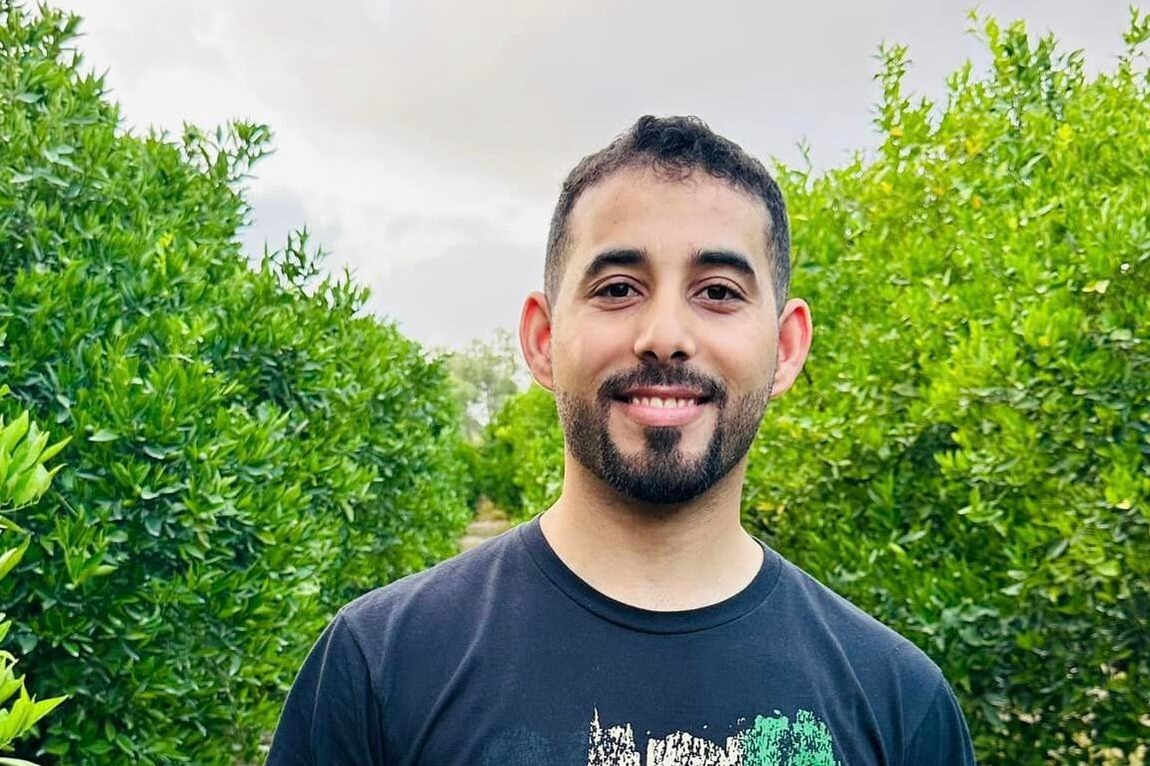It was only a month ago that award-winning Palestinian poet and writer Mosab Abu Toha, a 30-year-old husband and father of three, published an essay in the New Yorker describing his life in Gaza and the terror and destruction Israeli airstrikes were inflicting on his community. He wrote about bombs dropping in his neighborhood and a barrage of news notifications on his phone alerting to other explosions nearby. “Sometimes I decide not to check the news. We are part of it, I think to myself,” he wrote.
“One idea in particular haunts me, and I cannot push it away,” he wrote. “Will I, too, become a statistic on the news?”
On Nov. 20, NewYorker.com executive editor Michael Luo posted on X that the publication had “lost touch” with Abu Toha and learned that he had been arrested in central Gaza. “His whereabouts are now unknown,” the New Yorker reported on Monday, calling for his safe return.
Diana Buttu, a Palestinian-Canadian lawyer and former spokesperson for the Palestinian Liberation Organization, posted on social media that Abu Toha was “kidnapped by [the] Israeli army in Gaza as he was fleeing with his family,” which she said she learned through speaking directly with his family.
“The army took Mosab when he arrived at the checkpoint, leaving from the north to the south, as the army had ordered,” Abu Toha’s brother Hamza posted on social media. “We have no information about him. It is worth mentioning that the American embassy sent him and his family to travel through the Rafah crossing.”
Buttu told the Guardian that Abu Toha’s son was born in the U.S. and was cleared to be evacuated from Gaza, but “Mosab’s name was not on the list.”
“Eventually, they got his name and his wife’s name and the other kids on the list, and they were waiting to get out when it was safe,” Buttu recounted, attributing Abu Toha’s wife. “They were trying to evacuate from the north to the south, when they were stopped at a checkpoint with a lot of others. They were told to lift their arms to show they didn’t have anything. Mosab was ordered to put his son down and then the army grabbed him, along with a lot of other men.”
The Israeli Defense Forces told the Washington Post that they were looking into the arrest, and a U.S. State Department official told CNN they had no information to share so far.
Abu Toha was born in the Al-Shati refugee camp months before the Oslo Accords were signed in 1993. He went on to graduate with a degree in English from the Islamic University of Gaza before founding the Edward Said Library, the enclave’s first English-language public library, in his hometown of Beit Lahia in 2017. (A second branch was opened in Gaza City in 2019).
Abu Toha taught English at U.N. Relief and Works Agency schools in Gaza from 2016 to 2019. In October 2019, he left Gaza for the first time to become a visiting scholar at Harvard University. Last year, Abu Toha published his debut book of poetry, Things You May Find Hidden in My Ear. It won an American Book Award, Palestine Book Award, and Arrowsmith Press’s 2023 Derek Walcott Poetry Prize, and was a finalist for the National Book Critics Circle Award. Earlier this year, he completed a graduate poetry degree at Syracuse University, where he also worked as a teaching assistant before moving back to Gaza.
Since the war that began with terrorist group Hamas’ attack on Israel on Oct. 7, Abu Toha has published essays and poems about the situation in Gaza in a number of U.S. publications, including the New Yorker, the Washington Post, the New York Times Magazine, the Atlantic, and, most recently, the Nation. On social media, too, he has documented the destruction of his home, the death of one of his students, and periodic updates on his family’s status.
His latest post on Nov. 15 shared: “Alive. Thanks for your prayers. We don’t have any access to food or clean water. Winter is coming and we don’t have enough clothes. Kids are suffering. We are suffering. The army is now at Al-Shifa Hospital. More death, more destruction. Who can stop this? Please stop it now.”
